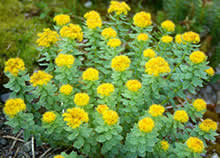Silence is Golden
Silence is Golden
Speech needs company; silence needs solitude.
Speech wants to conquer others; silence helps conquer oneself.
Speech makes friends or foes; silence befriends all.
Speech demands respect; silence commands it.
Speech is earth-bound; silence is heaven-bound.
Speech educates; silence exalts.
Speech is subjective; silence objective.
Speech has regrets; silence none.
Speech has limitations; silence is boundless.
Speech needs effort; silence a lot more.
Speech is human; silence is Divine.
While speaking you are heard by creatures; in silence you hear the creator.
Silence leads to a stillness of the mind,
Then to introspection,
Then to self-cleansing,
Finally to liberation.
— Prema Pandurang
I live alongside a busy highway where the constant sound of vehicles, sirens and horns fills the air 24 hours a day, seven days a week. It is so noisy that if I leave the bedroom window open, sleep is almost impossible. There are times when I search for silence, when I crave it. It rejuvenates my jangling mind like nothing else can.
And it’s not just physical noise that ramps up the stress levels. There’s also the constant chatter of your own mind, racing from one thought to the next. Those thoughts that keep on going, just like the energizer bunny. Perhaps you need some silence, some stillness of the mind. Even just a brief period of silence can lower your blood pressure, slow down the heart and lessen some of that adrenaline flowing through your veins.
So right now, find a quiet spot and for just a few minutes let go of your “to do” list and close your eyes, breathing in deeply and slowly once, twice and a third time. Find the silence and let it heal you!






